Diminishing returns of Pakistan’s protests
The protests sweeping the world have reached Pakistan. The issues are similar, such as corruption and rising living costs, but there are significant differences between the Pakistani and global protests.
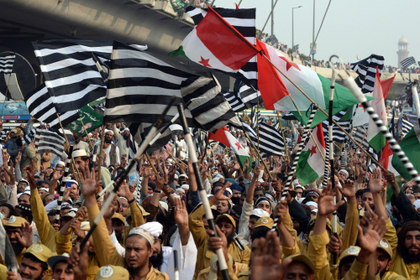 Courtesy: Shutterstock
Courtesy: Shutterstock
The protests sweeping the world have reached Pakistan. The issues are similar, such as corruption and rising living costs, but there are significant differences between the Pakistani and global protests.
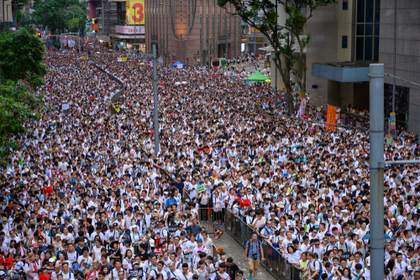 Courtesy: Shutterstock
Courtesy: Shutterstock
There has been a wave of civil protests across the globe since early 2019 which have taken governments by surprise by their sheer intensity and resilience. The common impelling factor has been discontent with government. Other factors for the current wave, beginning with the Arab Uprising in 2011, have been corruption and regressive constitutional changes. This infographic charts the arc of the outcry
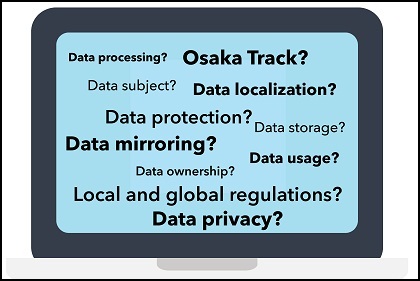 Courtesy: Gateway House
Courtesy: Gateway House
Data localisation, or the practice of physically storing data on servers located within a country, has become a subject of robust debate after India introduced data localisation provisions in its domestic laws. India’s position is not unique; China and Russia too have similar laws. It has pitted countries against each other. This Gateway House primer explains the complexities of data localisation and its elements
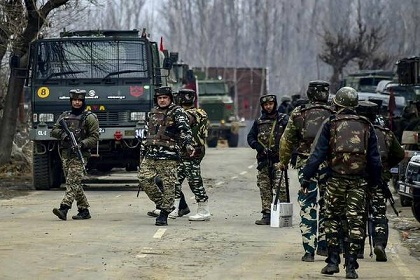 Courtesy: The Hindu
Courtesy: The Hindu
India has used military and diplomatic offensives against Pakistan as a response to the February 14 terrorist attack in Pulwama, Jammu and Kashmir. There are two more options available - legal, through sanctions, and economic - to curb Pakistan's dangerous adventurism. Gateway House explores both in the infographic below
 Courtesy: Forbes
Courtesy: Forbes
Fintech refers to a service or product which cuts across technology and finance. Covering everything from blockchain/cryptocurrency and Artificial Intelligence to data and the Internet-of-Things, it is becoming integral to India’s development agenda. This table sets out the various constituents of fintech and the regulations governing them
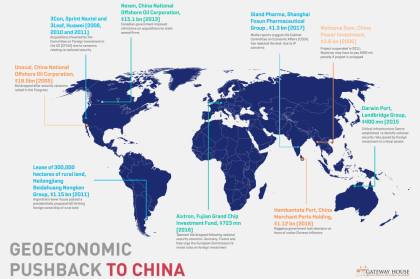 Courtesy: Gateway House
Courtesy: Gateway House
The Indian government may block the acquisition of Gland Pharma by Shanghai Fosun Pharmaceuticals, a move that offers further confirmation of how China’s opaque business model is causing concern worldwide. This infographic shows some high-profile cases of acquisitions by Chinese companies that ran into local opposition
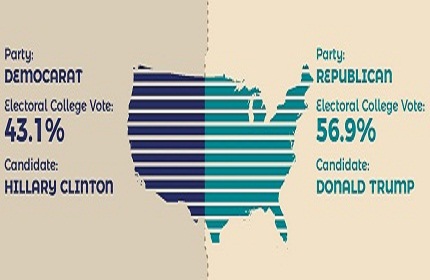 Courtesy: Gateway House
Courtesy: Gateway House
The year 2016 is the year of the divided electorate, so close were some of the election outcomes. Deep divisions lurk within voters coming from ostensibly “liberal” political cultures. The trend looks set to continue in the elections that will be fought in dozens of countries in 2017, where the votes could also be divided. Gateway House analyses these results through this infographic
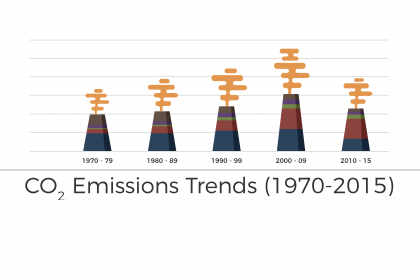 Courtesy: Gateway House
Courtesy: Gateway House
November was a significant month for climate change negotiations: the Paris Agreement of 2015 came into effect, and at this year’s COP22, heads of state reaffirmed their commitment to a plan of action. Gateway House traces the history of climate change negotiations and CO2 emission trends over the last four and a half decades.
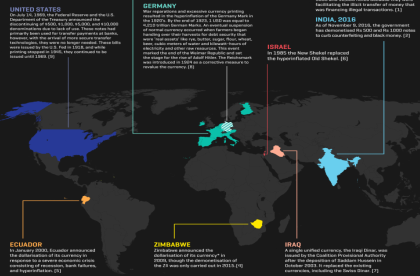 Courtesy: Gateway House
Courtesy: Gateway House
Prime Minister Narendra Modi's announcement on November 8 to demonetise notes of the denomination of Rs 500 and Rs 1000 has a precedent. This infographic traces some interesting demonetisation initiatives around the world. From discontinuation of high denomination notes due to lack of circulation, to the use of beer and water as 'real assets' in place of hyper-inflated currency.
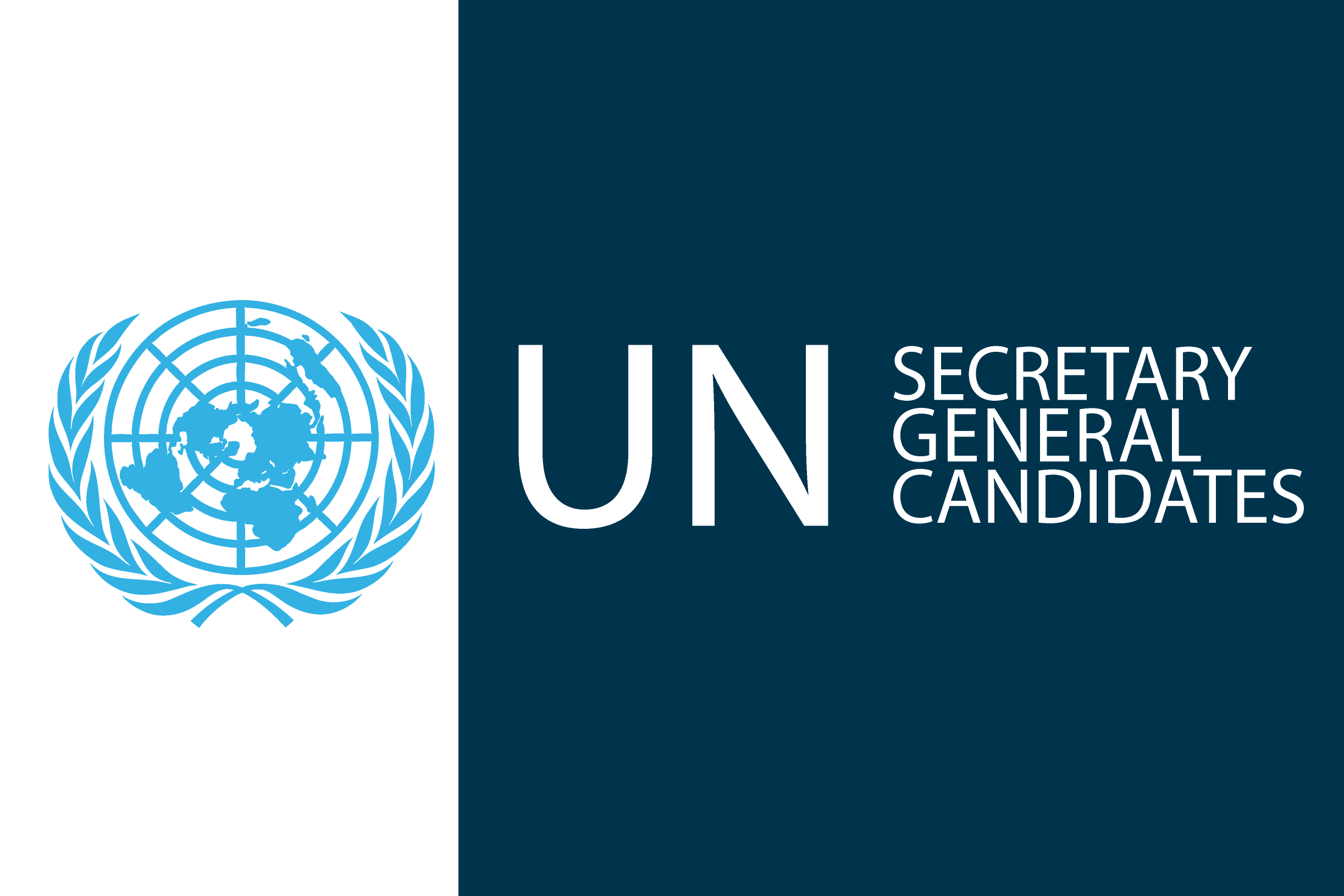 Courtesy: Gateway House
Courtesy: Gateway House
Competing for attention with the U.S. election is the vitally important global election for the next Secretary-General of the United Nations, due out in October. Incumbent Secretary-General Ban Ki-moon, whose tenure will be over in December, is being replaced at a time when the UN is losing credibility and battling perceptions of being weak and ineffectual. The much coveted post therefore offers a chance to remake a great institution, and in effect, change the world. Gateway House takes a look at the nine candidates in the fray.